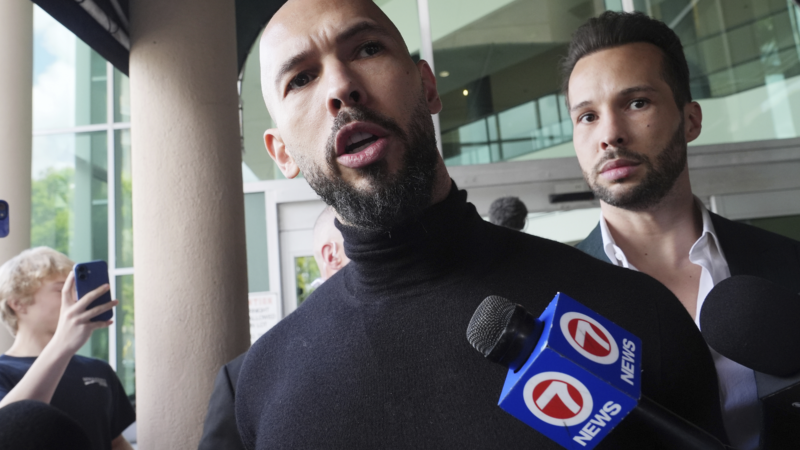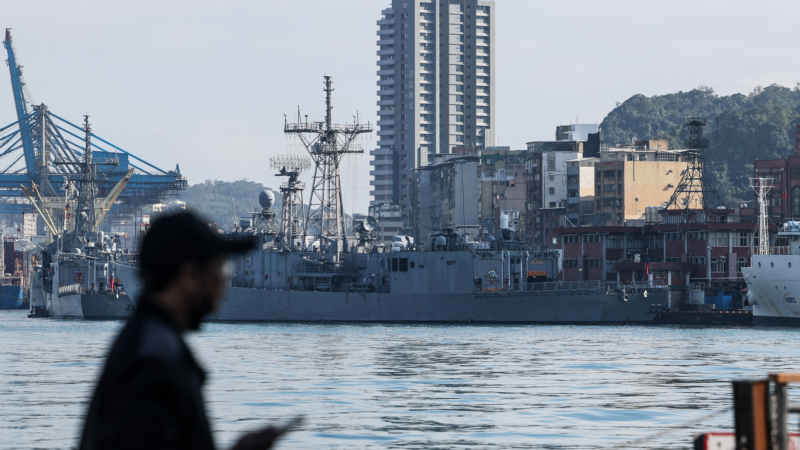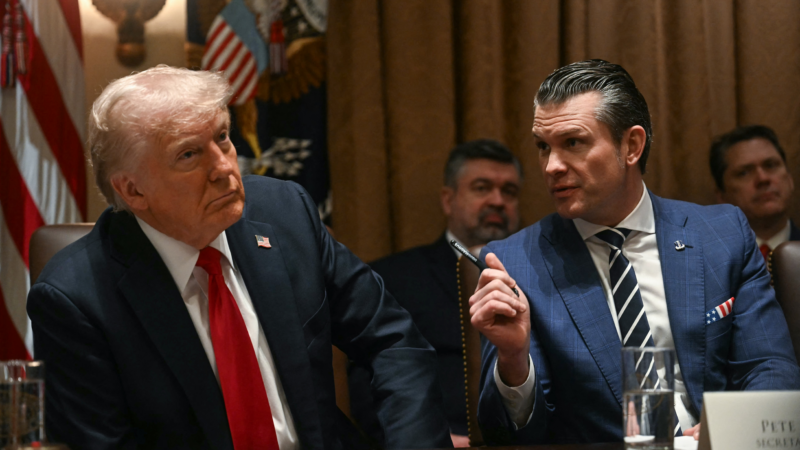Trump wants to label drug cartels terrorist organizations. Here’s what that means in practice
President Trump, in one of his first actions back in office, signed an executive order that moves the U.S. government toward designating drug cartels as terrorist organizations.
The decision is part of the Trump administration’s broader efforts to crack down on the flow of drugs and people across the southern border. The full implications of designating the cartels as terrorist organizations will depend, in large part, to how the administration follows through.
Here’s a look at what the order says, and the possible implications:
The order
The order says cartels are a national security threat in a way that traditional organized crime is not. They have conducted a “campaign of violence and terror through the Western hemisphere” with destabilizing effects, including a flood of “deadly drugs, violent criminals, and vicious gangs” into the United States.
It also says the cartels, as well as two transnational gangs rooted in Central America, pose a national security threat to the U.S., and it says it is American policy to “ensure the total elimination of these organizations’ presence in the U.S.”
The order instructs the U.S. State Department to recommend, within 14 days, whether to designate the cartels as foreign terrorist organizations.
What would a terrorist designaion do?
The U.S. government already has tools, including criminal charges and sanctions, that it can use to go after the cartels. A terrorist designation would broaden those options.
The most significant additional tool, experts say, would be the ability to bring what are known as material support prosecutions. Under U.S. law, it is a crime to provide material support to a designated terrorist organization.
Material support can run from money or weapons to lodging, false papers, or even a phone card.
In the context of drug cartels, prosecutors could potentially use this charge against a whole range of actors, including cartel members, the street gangs in the U.S. that sell the narcotics, as well as anyone who provides financial or logistical support.
The ripple effects, though, could be bigger.
Some analysts note that U.S. companies that do business in Mexico routinely make payments to Mexican companies, some of which could be controlled by or affiliated with a cartel or cartel members. That could possibly expose those American firms to penalties.
Migrants could also potentially be swept up in material support prosecutions. Experts say migrants often pay smugglers to get through Mexico or across the U.S.-Mexico border, and those smugglers often have ties to cartels. And that could provide grounds for American authorities to keep those migrants out of the U.S.
There have been questions about whether a terrorism designation opens the door to possible unilateral military action by the United States on Mexican territory.
The U.S. president already has the authority to conduct military action — a designation wouldn’t change that. But American military strikes inside Mexico would be a major step, and Mexico has made clear that it opposes any such action.
Has the U.S. considered this all before?
The idea of designating the cartels as terrorist organizations was considered during Trump’s first term in office, but also during the Obama administration, but ultimately the government never followed through.
There are a variety of reasons why it stopped short, said Jason Blazakis, who led the office at the State Department that makes the designations.
“One of the most significant reasons is the negative impact such a designation would have on the United States-Mexico bilateral relations,” Blazakis said. “Mexico, as a government, has opposed the designation of criminal organizations as terrorists, feeling that it would be something that could jeopardize their sovereignty.”
Another reason, he said, has been a desire to calibrate the list “to ensure that truly terrorist actors who are carrying out political acts of violence against civilians is on that list, thinking along the lines of groups like ISIS and Al Qaida, as opposed to criminal organizations that are primarily motivated by financial concerns.”
He also notes that the U.S. government already has a lot of tools to target the cartels, including criminal prosecutions and freezing assets, and so a designation and the additional tools that come with the designation weren’t viewed as necessary.
What about Mexico?
Mexican President Claudia Sheinbaum has said Mexico will defend its sovereignty but also try to coordinate with the United States.
“We all want to fight the drug cartels,” Sheinbaum told reporters this week.
The cartel issue can’t be viewed in vacuum, said Maria Calderón, a Mexico scholar at the Wilson Center, a nonpartisan policy center in Washington, D.C.
“We need to see the security component of the U.S.-Mexico border relation ingrained with the trade and immigration conversation,” she said. “Those three fields of the U.S-Mexico bilateral relationship are intertwined. You can’t separate them.”
Trump campaigned on promises cracking down on the Southern border, and stemming the flow of both drugs and people across the frontier. He also has threatened to impose tariffs on Mexico.
Since taking office on Monday, he has issued executive actions or publicly addressed all three topics. There is a political messaging side to these moves, analysts say, but they also can be seen as a way to pressure Mexico to coordinate more, including on security.
“I really hope that Mexico takes this as an opportunity to sit down at the table with the Trump administration and view the cartel problem as a joint problem and say, ‘OK, we have the actual designation. How is it that we’re going to we’re going to work together to address this issue?'” Calderón said.
Andrew Tate, facing rape and trafficking charges in Romania, is back in the U.S.
The Tate brothers have been allowed to leave Romania, where they were charged with human trafficking, rape and forming a criminal group to sexually exploit women. They arrived in Florida on Thursday.
Musk says work to stop Ebola was accidentally cut but restored. Experts raise doubts
Elon Musk said USAID's "Ebola prevention" was "accidentally canceled" but "immediately" restored. Health specialists following the current outbreak in Uganda raise doubts about the restoration.
The U.S. resumes hundreds of millions in security aid to Taiwan, annoying China
The U.S. has unfrozen millions in security assistance for Taiwan, with an eye toward China.
Pentagon directs removal of trans service members from military
Service members and recruits who are diagnosed with or treated for gender dysphoria are to be separated from the U.S. military in accordance with an executive order issued a month ago by President Trump.
Natasha Rothwell on checking into ‘The White Lotus’ Thailand: ‘It felt like home’
In the new season of The White Lotus, Rothwell reprises her role of spa manager Belinda, a woman "on the precipice of change" as she straddles the line between guest and staffer.
Bill advances which would further protect police from criminal, civil prosecution
A recent bill in Alabama’s legislature would establish new legal protections for police officers who use physical or deadly force on a person while in the line of duty. Bill supporters say it will improve police safety, recruitment and retention. But critics worry it would give police officers immunity from criminal prosecution.









